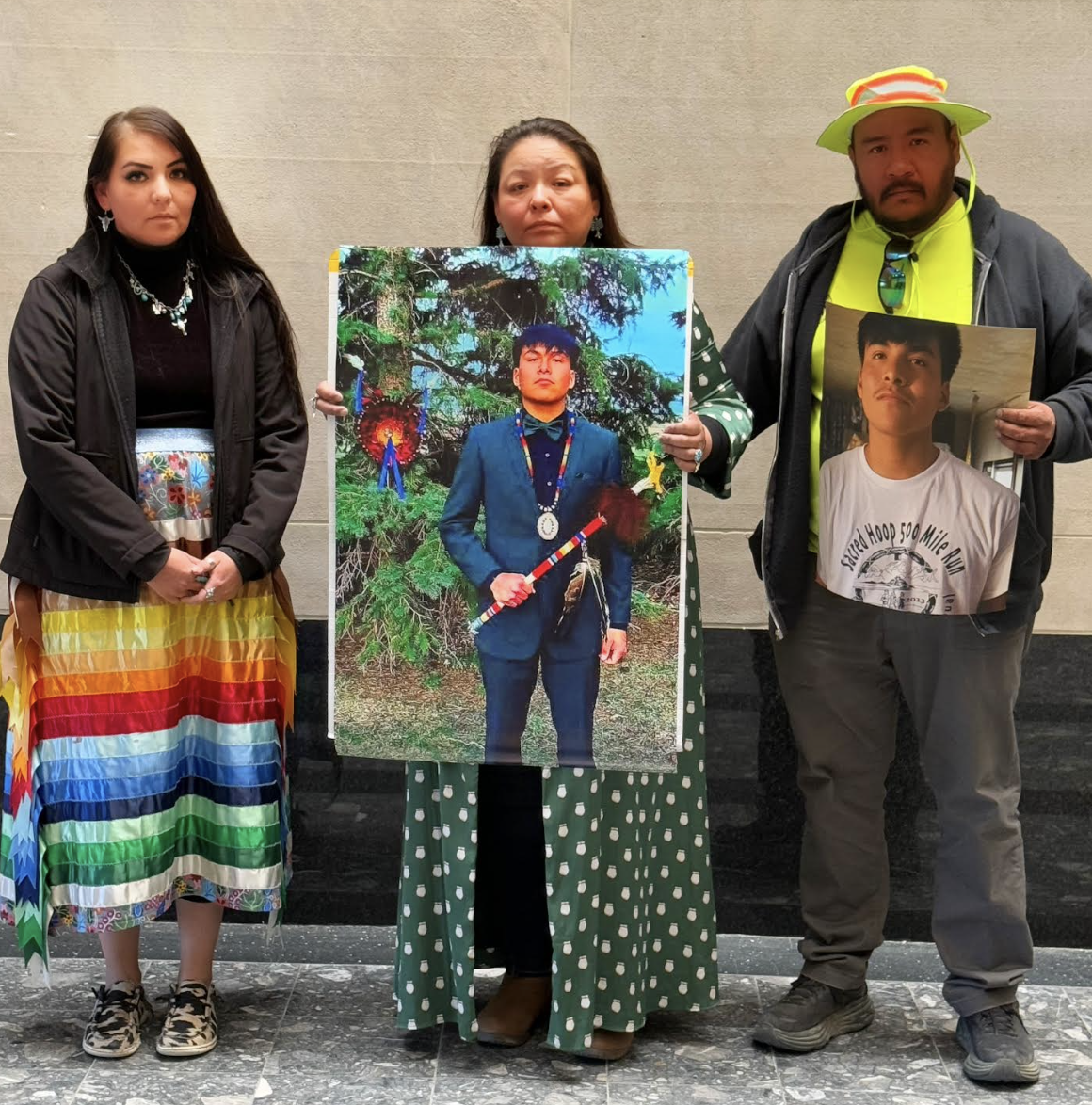
- Details
- By Native News Online Staff
In an emotional hearing on March 26, the family of Renzo Bull Head passionately testified before the North Dakota Senate State and Local Government Committee, urging the swift approval of House Bill 1535. This proposed legislation seeks to create a "Feather Alert" system, which would utilize the Emergency Alert System to quickly notify the public about missing Indigenous individuals, fostering greater collaboration among law enforcement agencies.
Renzo's family shared their personal and painful journey since Renzo went missing on March 16.
“As a family, we are in the midst of a nightmare. Renzo is not just a statistic; he is a son, a brother, a fiancé, and a friend. With over 68 individuals reported missing in North Dakota— and 19 of them being Indigenous—this is not just our family's tragedy; it is a community crisis," speaking on behalf of the family, Renzo's aunt, Rony, conveyed the urgency of the situation.
North Dakota House Representative Jayme Davis, who invited Renzo’s family to testify, underscored the vital importance of this legislation. “This bill is about saving lives. Right now, a young man is missing, and his case exposes the shortcomings in our current system. We need the Feather Alert to ensure swift action when a loved one goes missing.”
The proposed Feather Alert system aims to protect lives by facilitating the rapid distribution of information about missing Indigenous individuals. Key elements of the legislation include:
1. Timely Alerts Can Save Lives: The system will utilize existing emergency alert channels to quickly broadcast vital information about missing Indigenous individuals. Prompt alerts can significantly enhance recovery chances.
2. Community Involvement: HB 1535 emphasizes the need for local, tribal, and state resources to collaborate effectively, fostering a united approach in search efforts and building trust within Indigenous communities.
3. Culturally Relevant Responses: The bill allows alerts to be issued in Indigenous languages when necessary, promoting effective communication and honoring cultural heritage.
4. Data-Driven Monitoring: An annual reporting system will be established to track the efficacy of the Feather Alert system, ensuring that families and communities are supported in a timely manner.
5. Advocacy and Education: The Indian affairs commission will serve as a liaison to facilitate communication between tribal and state agencies while providing essential public education about the Feather Alert system.
“I would urge each member of this committee to support HB 1535—not just for Renzo, but for all families who are waiting for news of their loved ones,” Rony implored. “Let us work together to create a safer North Dakota for everyone, especially for our Indigenous communities who are disproportionately affected by violence and abduction.”
More Stories Like This
Native News Weekly (August 25, 2024): D.C. BriefsNative Bidaské: The Illusion of Freedom and the Myth of America 250, Leonard Peltier Speaks Out
Monday Morning (March 2, 2026): Articles You May Have Missed This Past Weekend
Native News Weekly (March 1, 2026): D.C. Briefs
Scope Narrowed, Report Withheld: Questions Mount Over Michigan Boarding School Study
Help us defend tribal sovereignty.
At Native News Online, our mission is rooted in telling the stories that strengthen sovereignty and uplift Indigenous voices — not just at year’s end, but every single day.
Because of your generosity last year, we were able to keep our reporters on the ground in tribal communities, at national gatherings and in the halls of Congress — covering the issues that matter most to Indian Country: sovereignty, culture, education, health and economic opportunity.
That support sustained us through a tough year in 2025. Now, as we look to the year ahead, we need your help right now to ensure warrior journalism remains strong — reporting that defends tribal sovereignty, amplifies Native truth, and holds power accountable.
 The stakes couldn't be higher. Your support keeps Native voices heard, Native stories told and Native sovereignty defended.
The stakes couldn't be higher. Your support keeps Native voices heard, Native stories told and Native sovereignty defended.
Stand with Warrior Journalism today.
Levi Rickert (Potawatomi), Editor & Publisher


